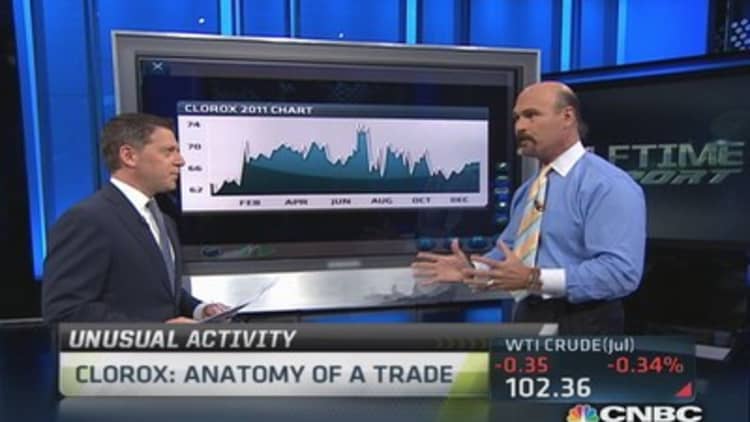
Days before billionaire investor Carl Icahn launched a $12.6 billion bid to buy Clorox in 2011, one or more investors placed some very large and well-timed bets in the options market.
These massive trades, which returned 600 percent in four days, attracted a bit of attention at the time. Now, three years later, the FBI and SEC have launched an insider trading investigation to determine whether Icahn tipped off gambler William Walters who, in turn, told golfer Phil Mickelson, according to multiple published reports.
On Monday July 11th 2011, when Clorox stock was trading for $70, 16,242 call options traded, over 50 times the average volume of the previous five days. On July 14th, Icahn offered to buy Clorox for $76.50 a share, creating an instant windfall for whomever made those options trades. A call contract allows an investor to buy a stock for a set price within a set time.
The timing and nature of the buying raised eyebrows within the options community. The trades occurred just days before those calls were set to expire, giving whomever purchased them precious little time to make money.
"No one makes that trade unless they know something," said Dan Nathan, a CNBC contributor and co-founder of RiskReversal.com. "The likelihood of it working out is just too low."
The two most active options on July 11th were the July $70-strike calls and the July $72.50-strike calls, which traded 4,500 and 3,000 times, respectively, for an average price of around 50 cents a contract. Four days later, on expiration, they were worth over $3, a six-fold return.
"The volume was exceptionally unusual and caught the eye of many options traders at the time," said Mike Khouw, managing director and chief strategist at Dash Financial.
The size of the buying also suggests that whomever placed those trades was an institutional-sized player. Retail options investors tend to buy in smaller lots, typical five or 10 contracts at a time. In order to buy 4,500 contracts at an average price of 50 cents each, an investor would need to commit $225,000 in capital.
"Retail traders don't spend a quarter-million-dollars making a five-day bet on a name like Clorox," said Nathan.
Other than Icahn's letter, traders say there were few catalysts that would have driven Clorox's stock significantly higher. Earnings weren't scheduled until the first week of August, well after those July call options expired.




